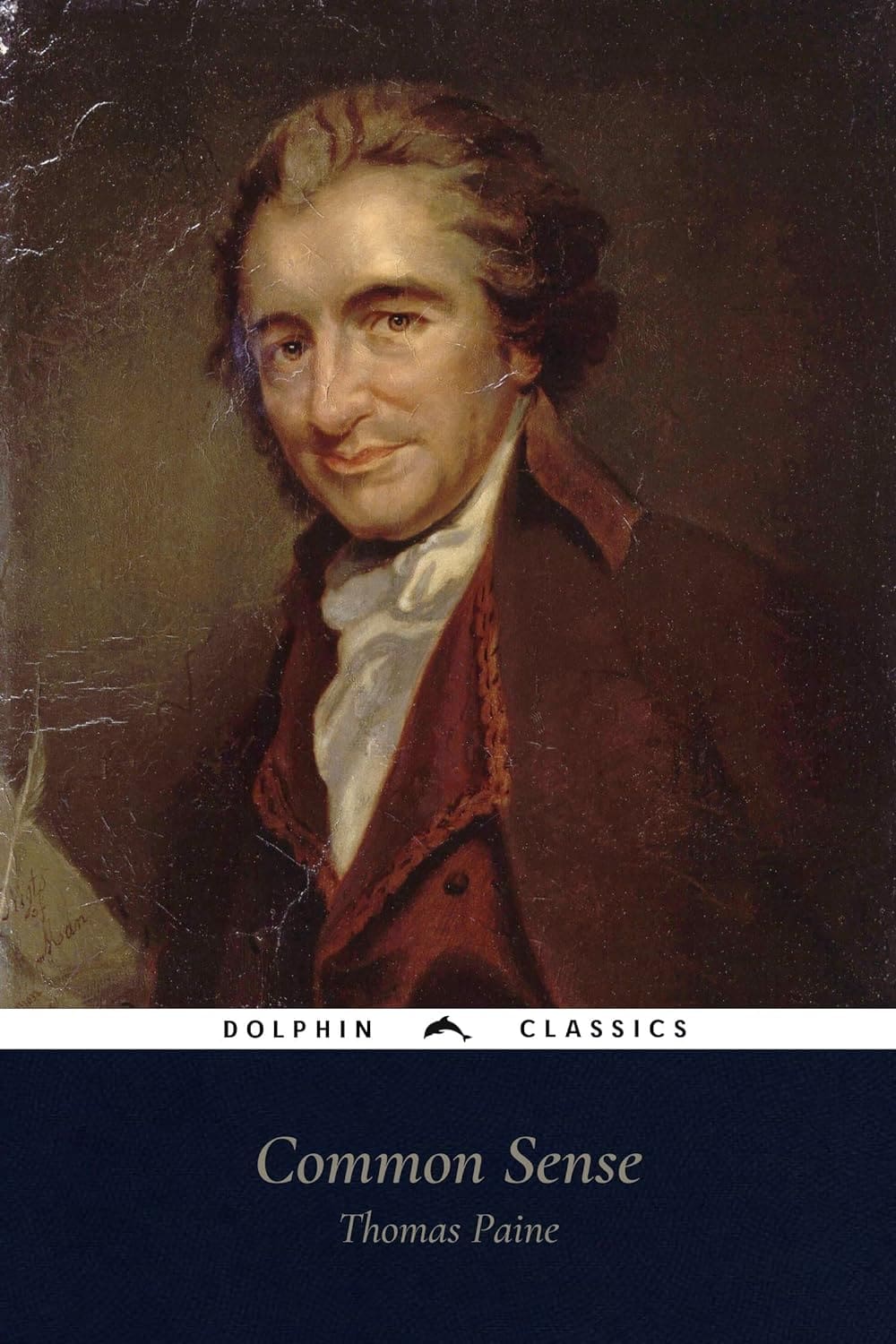Published on January 10, 1776, Common Sense by Thomas Paine sold an estimated 500,000 copies and paved the way for the Declaration of Independence. In this brief pamphlet, Thomas Paine’s brief but bold words inspired a fledgling nation to fight for independence and create a government that was free from the rule of a king. The influence of Paine’s pamphlet is a testament to the power of words.
Initially, Thomas Paine intended to name his pamphlet “The Plain Truth.” However, Benjamin Rush, a doctor who later signed the Declaration of Independence, convinced him to change it to “Common Sense.” The writing style of the pamphlet was simple yet inspirational, emphasizing that the decision to declare independence from British rule was an obvious and logical choice.
While less well-known, Paine also published newspaper articles and some poetry. One notable article was “African Slavery in America,” a harsh criticism of the African slave trade in America at the time. Paine’s Crisis Papers were also widely read and distributed during the early days of the Revolutionary War.
George Washington was so inspired by Paine’s words that he had the following read to the downtrodden troops at Valley Forge.
“These are the times that try men’s souls. The summer soldier and the sunshine patriot will, in this crisis, shrink from the service of his country; but he that stands it now deserves the love and thanks of man and woman. Tyranny, like hell, is not easily conquered; yet we have this consolation with us—that the harder the conflict, the more glorious the triumph.” The American Crisis Number I, “The Crisis Papers”
11 Quotes from Common Sense by Thomas Paine
1. “A long habit of not thinking a thing WRONG, gives it a superficial appearance of being RIGHT, and raises at first a formidable outcry in defence of custom. But the tumult soon subsides. Time makes more converts than reason.” Common Sense by Thomas Paine, pg. 1
2. “The cause of America is in a great measure the cause of all mankind.” Common Sense by Thomas Paine, pg. 1
3. “…however our eyes may be dazzled with snow, or our ears deceived by sound; however prejudice may warp our wills, or interest darken our understanding, the simple voice of nature and of reason will say, it is right.” Common Sense by Thomas Paine, pg. 9
4. “Of more worth is one honest man to society and in the sight of God, than all the crowned ruffians that ever lived.” Common Sense by Thomas Paine, pg. 29
5. “‘Tis not the concern of a day, a year, or an age; posterity are virtually involved in the contest, and will be more or less affected, even to the end of time, by the proceedings now.” Common Sense by Thomas Paine, pg. 32
6. “The reformation was preceded by the discovery of America, as if the Almighty graciously meant to open a sanctuary to the persecuted in future years, when home should afford neither friendship nor safety.” Common Sense by Thomas Paine, pg. 38
7. “The intimacy which is contracted in infancy, and the friendship which is formed in misfortune, are, of all others, the most lasting and unalterable.” Common Sense by Thomas Paine, pg. 66
8. “For myself, I fully and conscientiously believe, that it is the will of the Almighty, that there should be diversity of religious opinions among us: It affords a larger field for our Christian kindness. Were we all of one way of thinking, our religious dispositions would want matter for probation; and on this liberal principle, I look on the various denominations among us, to be like children of the same family, differing only, in what is called, their Christian names.” Common Sense by Thomas Paine, pg. 68

9. “We have it in our power to begin the world over again.” Common Sense by Thomas Paine, pg. 83
10. “A situation, similar to the present, hath not happened since the days of Noah until now. The birthday of a new world is at hand, and a race of men, perhaps as numerous as all Europe contains, are to receive their portion of freedom from the event of a few months.” Common Sense by Thomas Paine, pg. 83
11. “In short, Independance is the only BOND that can tye and keep us together.” Common Sense by Thomas Paine, pg. 84
Related Posts:
